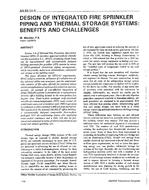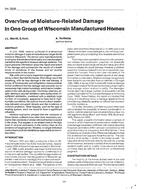Click here to purchase
The climate crisis currently being faced by humanity is going to increase extreme weather events which are likely to make long-duration power outages for communities increase in frequency and duration. Microgrids are an important part of electrical resilience for connected communities during power outages. They also can have transactive potential to save energy on electric loads through coordinating distributed energy resources. Microgrids are expensive though. Making electric load coverage available nearly 100% of the time given known design basis threats and component failure statistics is one of the largest drivers of cost. Such high availability is non-negotiable for critical applications such as life saving equipment in a hospital but could perhaps be compromised for less critical loads. . This paper documents an analysis that used the Microgrid Design Toolkit and EnergyPlus simulation results with two energy retrofit options exercised. The results show how increasing energy efficiency and reducing availability to 90% and 80% reduced the calculated price of a photovoltaic and battery storage microgrid in a New Mexico neighborhood by 63% and 70%, respectively. A microgrid with 80% availability with 48-hour islanded run-time capability is therefore suggested as a low-cost method for accelerating microgrid infrastructure penetration into the residential sector. Such an “under-built” microgrid will significantly increase resilience even though it will not guarantee energy security for the non-critical applications in residential households. This will in turn accelerate the growth of storage potential across communities providing greater grid flexibility. The results of the study also show how increased insulation applied to the proposed residential community can be less expensive than creating a larger microgrid that carries larger electric loads. The likelihood that energy retrofits are a better investment than a larger microgrid is inversely proportional to availability. Here, availability is a metric equal to the percentage of the demand load served by the microgrid during power outages, not including the startup period.
Product Details
- Published:
- 2022
- Number of Pages:
- 11
- Units of Measure:
- Dual
- File Size:
- 1 file , 2.2 MB
- Product Code(s):
- D-TO-22-C074
- Note:
- This product is unavailable in Russia, Belarus


